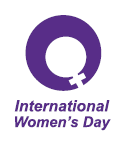Women’s Rights – The Unknown Factor?
In 2009, the Convention on the Elimination of All Forms of Discrimination against Women (CEDAW) had its 30th anniversary. On the occasion of this recent anniversary and International Women’s Day, the research platform “Human Rights in the European Context” organized, in cooperation with the Austrian NGO-CEDAW-Committee, a public lecture: “Women’s Rights- The Unknown Factor?”. The panel included Angelika Kartusch of the Austrian Lawyers Association, Claudia Thallmayer of Women in Development Europe (WIDE), Maria Rösslhumer of the Austrian Women’s Shelter Network, WAVE – Women Against Violence Europe, and was moderated by Julia Planitzer (Ludwig Boltzmann Institute of Human Rights).
Johanna Dohnal, state secretary for general women’s issues in 1980, signed the convention on behalf of Austria during the World Conference on the United Nations Decade for Women: Equality, Development and Peace in Copenhagen. In 1982 the convention was ratified and entered into force in Austria. Although many years passed since then, the Austrian Supreme Court held in 2007 that the opinion and recommendations of the Committee on the Elimination of Discrimination against Women (UN CEDAW Committee) are not considered relevant for its decision.
In order to support a broader and systematic implementation of CEDAW in Austria, the Austrian NGO-CEDAW-Committee was established. The Austrian NGO-CEDAW-Committee started its work with preparing an alternative report (shadow report) for Austria’s 6th periodic report submitted to the UN CEDAW Committee in 2006.
The Austrian NGO-CEDAW-Committee consists of a diverse group of experts in the fields of women’s rights and gender equality, which aims at a systematic implementation of CEDAW in Austria. This aim could be reached by implementing a comprehensive strategy or a national action plan on a factual equality between women and men.
Following the aim of the Austrian NGO-CEDAW-Committee the panellists Angelika Kartusch, Claudia Thallmayer and Maria Rösslhumer discussed the consequences of absent consideration of CEDAW in various fields.
Angelika Kartusch gave an overview on the development of CEDAW. CEDAW contains a comprehensive obligation of state parties to eliminate discrimination of women in all spheres of life. The CEDAW Convention requires both equality of opportunity (de jure equality) and equality of results (de facto equality). Since violence is not mentioned in CEDAW, the General Recommendation No. 19 in 1992 of the UN CEDAW Committee held that violence against women is a form of discrimination against women and therefore encompassed by CEDAW. The implementation of CEDAW is monitored by the UN CEDAW Committee, which consists of 23 independent experts. Austria was examined by the CEDAW Committee in 2007 and has to submit the next state report in 2011. The CEDAW Committee commended Austria in its last review on a number of new laws and amendments aimed at reinforcing the equal treatment of women and men. At the same time the Committee expressed concern about the lack of an effective mechanism to monitor and evaluate progress in the implementation and impact of laws, policies and plans regarding the promotion of gender equality.
Claudia Thallmayer emphasized the impact of the financial crises on women. Differently from previous financial crises industrialized countries are also affected his time. Consequently the response to this crisis is different. Gender-specific impacts of the crisis vary from country to country. Within the crisis women are squeezed out of often poorly paid labour and have to find alternatives in the informal sector. Additionally the crisis is used as excuse to worsen labour conditions and decrease wages. Restrictive immigration policies lead women to need to find opportunities for employment in the informal sector such as sex work or domestic work.
Maria Rösslhumer explained in her presentation on the basis of several examples that the obligations of CEDAW, also with regard to violence against women, seem to lack specific awareness within the justice system in Austria. Furthermore Maria Rösslhumer referred to the cases submitted to the CEDAW Committee under the Optional Protocol to the Convention on the Elimination of All Forms of Discrimination against Women. The cases have been submitted on behalf of the descendants of Sahide Goekce and Fatma Yildirim by the Vienna Intervention Centre against Domestic Violence and the Association for Women’s Access to Justice.
The presentations as well as the following discussion also covered the topic of precarious work, which primarily affects women. Women mostly work in the service sector and are employed part-time. The crisis supports this development, since economic stimulus packages back up prevailingly male-dominated sectors. Explanations for the very high women’s part-time employment rate might be on the one hand that many women work in sectors with high part-time employment rates, such as health care. On the other hand women still perform major parts of unpaid work, such as caregiving. In order to improve the reconciliation of work and private life, more flexible working models are needed. At the same time leading positions while being part-time employed need to be further promoted. Currently only every tenth person working part-time has a leading position.
In order to reach equality between women and men at work specific measures won’t be sufficient. The society needs to develop basic conditions in politics, economy and education that enable women and men the reconciliation of work and private life.
Further information and links:
http://www.wave-network.org/
http://www.aoef.at/ (in German only)
http://www.juristinnen.at (in German only)
Taking Stock, The financial crisis and development from a feminist perspective – WIDE’s Position paper on the global social, economic and environmental crisis, 2010:
http://62.149.193.10/wide/download/TakingStock_WIDEaustriaEN.pdf?id=1110
United Nations Inter-Agency Network on Women and Gender Equality (IANWGE), 30 years UN Convention on the Elimination of All Forms of Discrimination against Women. Success Stories: http://www.unifem.org/cedaw30/success_stories/
Women’s NGO Platform, NGO Shadow Report Austria, Wien 2006: http://www.iwraw-ap.org/resources/pdf/Austria%20Shadow%20Report.pdf
Handbook to the Optional Protocol to the Convention on the Elimination of All Forms of Discrimination against Women, Municipal Department for the Promotion and Co-ordination of Women’s Issues of the City of Vienna, Anna Sporer, Vienna 2000.
Schöpp-Schilling, Hanna Beate und Cees Flintermann (Ed.): The Circle of Empowerment. Twenty-five Years of the CEDAW-Committee, New York 2007
Downloads in German only

